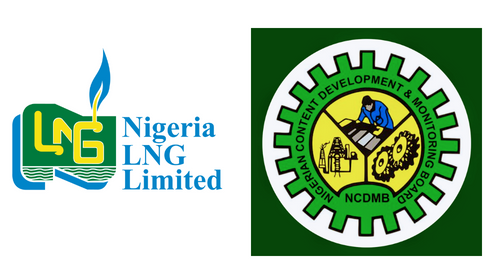Financing and Partnership as Cornerstones of African LNG Development
The Invest in African Energy Forum in Paris highlighted the immense potential of Africa’s liquefied natural gas (LNG) sector. However, panelists stressed that realizing this potential hinges on securing substantial investments, fostering robust partnerships, and prioritizing local capacity building. Julius Rone, Managing Director of UTM Offshore, emphasized the strong global demand for LNG and underscored the critical need for investment to unlock Africa’s vast gas resources. He pointed out that while the market opportunity is substantial, the crucial missing element is readily available financing to propel projects forward. Rone showcased UTM Offshore’s $5 billion FLNG project in Nigeria, which is poised for pre-construction, illustrating the ability of indigenous companies to forge effective partnerships and drive project development. He further emphasized the importance of attractive project economics, including low-cost resources and stable legal frameworks, to attract international investment and ensure successful project implementation.
Competitive Advantage and Project Economics: A Delicate Balancing Act
Federico Petersen, Chief Commercial Officer of Golar LNG, acknowledged Africa’s geographical advantage over the United States in accessing global markets. However, he stressed the importance of robust project economics from inception to outcompete US production. While Africa enjoys proximity to major markets like Europe and Asia, the cost of extraction and liquefaction must remain competitive to offset the US’s advantages in established infrastructure and economies of scale. Petersen underscored the need for technical expertise, financial strength, efficient project execution, and access to low-cost gas resources to achieve profitability in the highly competitive global LNG market. He further emphasized the crucial role of predictable legal frameworks and contractual stability to attract and retain investment for both upstream operators and LNG developers.
Prioritizing Domestic Gas Utilization and Infrastructure Development
Denis Chatelan, Head of Business Development at Perenco, advocated for prioritizing domestic gas utilization and infrastructure development before focusing on large-scale LNG exports. He cited Perenco’s successful gas-to-power and gas-to-industry projects in Gabon and Cameroon as examples of this strategy. By focusing on domestic needs first, Perenco has established a foundation for future LNG development, demonstrating that a balanced approach to gas resource development can benefit both local communities and the overall economy. Chatelan highlighted the importance of risk-tolerant investments, emphasizing that substantial rewards often require taking calculated risks, particularly in developing critical infrastructure, which forms the bedrock of resource development and economic diversification. This focus on domestic value creation not only addresses immediate energy needs but also establishes a strong base for future expansion into the more capital-intensive LNG export market.
Building Local Capacity and Fostering Long-Term Sustainability
Jiří Rus, Sales & Business Development Director at Neuman & Esser, stressed the critical importance of local capacity building for the long-term sustainability of LNG and gas projects. He highlighted the essential role of original equipment manufacturers (OEMs) in providing in-country operational support through local service centers, as opposed to relying solely on remote assistance from overseas headquarters. By establishing local presence and expertise, OEMs can contribute to the development of a skilled workforce and ensure the efficient operation and maintenance of critical infrastructure, minimizing downtime and maximizing project value. This localized approach not only fosters greater efficiency and responsiveness but also contributes to skills development and job creation within local communities.
Integrating Local Benefits and Regional Cooperation
Dominique Gadelle, VP of Upstream & LNG at Technip Energies, emphasized the vital role of integrating local benefits into project design and execution. He advocated for prioritizing local economic development and power generation prior to pursuing international exports. Gadelle also highlighted the potential of exploring diverse gas monetization pathways to maximize value creation. He underscored the importance of promoting regional cooperation to leverage shared resources and infrastructure, facilitating a more integrated and efficient approach to gas development. Furthermore, Gadelle stressed the need for robust training and education programs to equip local communities with the skills necessary to participate in and benefit from the growth of the gas sector. This holistic approach ensures that gas development contributes not only to economic growth but also to social progress and long-term sustainability.
The Path Forward for African LNG: A Collaborative Effort
The discussions at the Invest in African Energy Forum collectively painted a clear picture of the path forward for African LNG. Securing financial investment remains paramount, along with the development of attractive project structures that address the needs of both international investors and African nations. Establishing stable legal frameworks, promoting domestic gas utilization, and investing in crucial infrastructure are essential steps toward unlocking the full potential of Africa’s abundant gas resources. Furthermore, fostering robust partnerships, prioritizing local content, and investing in capacity building are crucial to ensuring that the benefits of this resource development are shared equitably and contribute to long-term sustainable growth across the continent. By adopting a holistic approach that balances economic development with social and environmental considerations, Africa can position itself as a key player in the global LNG market while driving transformative change within its own borders.














